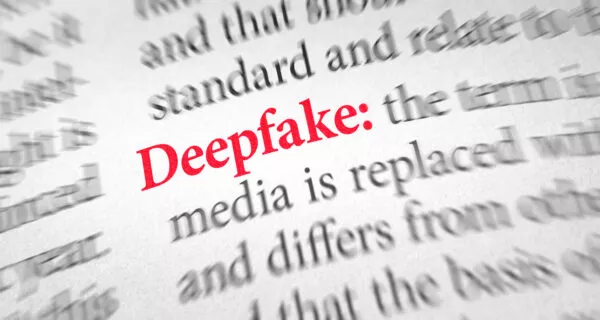In the course of my career, I have observed a familiar pattern relating to technological innovation. A novel technology sparks an industry-wide shift in business practices, leaving the law to play catch-up thereafter. We saw this in the 1980s, following the introduction of videocassette recording technology and the ensuing legal challenges by the film industry. Although the 1984 Betamax decision dealt an initial blow to the industry, it ultimately opened the door to the huge home-video market. Later, in the early 2000s, a new technology, the MP3 file sharing format, disrupted the music business when Napster utilized it to offer free music to consumers. After trying unsuccessfully to litigate this model out of business, the music industry finally adapted by embracing the streaming model, led by Spotify; and now record labels are enjoying massive profits after suffering several decades of losses. What is a Deepfake? Legality of Deepfakes Beyond implicating individual rights, the erosion of consumer trust being caused by deepfakes has been a cause of concern for lawmakers. Virginia has outlawed the use of deepfakes in connection with revenge porn; Texas has outlawed deepfake technology in political campaigns; and California has laws on the books prohibiting both uses. Further, over the veto of then President Trump, Congress voted to require the Department of Homeland Security to investigate and report on expanding threats posed by deepfake technology in the hands of foreign influence on elections, news and the like. Outside the U.S, deepfakes have been responsible for political interference in India, Belgium, Malaysia and Gabon. Predictions for Deepfake Technology Most recently, Elon Musk grappled with the issue of authenticity when it comes to owners of Twitter accounts and use of his platform to share fake news. Still, the authorized use of the deepfake technology could bring significant cost savings to the production of commercials using celebrities. Hence, we find ourselves again at a familiar crossroad in technological innovation – embracing technology’s march toward cheaper and better on one hand, and on the other, leaning on the law to determine its rightful application. With simple mischief at one end of the spectrum and threats to national security at the other, we will of course be watching the developments closely. Brad Auerbach is a Partner with our California-based team, bringing over three decades of senior in-house counsel experience (at Disney, Philips, Qualcomm and HP) in the media, entertainment and technology industries. Brad has been involved in structuring many groundbreaking deals with a diverse range of rights holders, including NFL, NBA, NHL, HBO, MTV, ESPN, Sesame Workshop, Nickelodeon, Live Nation, Marvel Entertainment, International Olympic Committee, English Premier League, Screen Actors Guild, every significant Hollywood studio, each of the major record labels, many major book and news publishers, several world class photographers and Getty Images, among numerous others. [1] Examples of deepfake videos: https://youtu.be/wq-kmFCrF5Q; https://youtu.be/QhYY-VX6IgQ; https://youtu.be/j3bRq6MutQo; and https://youtu.be/PINeQV0LH6k
Today, the cutting-edge artificial intelligence (AI) technology behind “deepfakes” appears to be setting in motion this same cycle, with new business practices cropping up for the law to untangle. The term “deepfake” is derived from a form of AI technology known as “deep learning” which uses algorithms to swap faces in video and digital content in order to create imperceptibly fake media. These digital simulations or “deepfakes” are often used to depict celebrities doing or saying things they never actually did or said. They are also being used for other nefarious purposes, as well as in marketing, all with dubious legality.
A quick Google search will reveal an array of examples[1], from Tom Cruise and Elon Musk to Bruce Willis and Vladimir Putin. Just like free music in the MP3 format, these videos pop up and come down often, so your search results may vary. Celebrities argue that unauthorized deepfakes of their image violate various rights of publicity; while advertisers using celebrity deepfakes to sell products rely on concepts of fair use, satire, parody or disclaimers to defend these practices. Given the burgeoning use of deepfakes without proper permission, it remains to be seen whether a celebrity will take legal action against a startup using this inexpensive technology to tout its product.
Several industry observers have suggested that legislation may not be as effective as corporate scrutiny in curtailing the unauthorized use of deepfakes. The Wall Street Journal for instance has a huge incentive to ensure it does not inadvertently deliver news based on a deepfake.
This publication should not be construed as legal advice or a legal opinion on any specific facts or circumstances not an offer to represent you. It is not intended to create, and receipt does not constitute, an attorney-client relationship. The contents are intended for general informational purposes only, and you are urged to consult your attorney concerning any particular situation and any specific legal questions you may have. Pursuant to applicable rules of professional conduct, portions of this publication may constitute Attorney Advertising.
